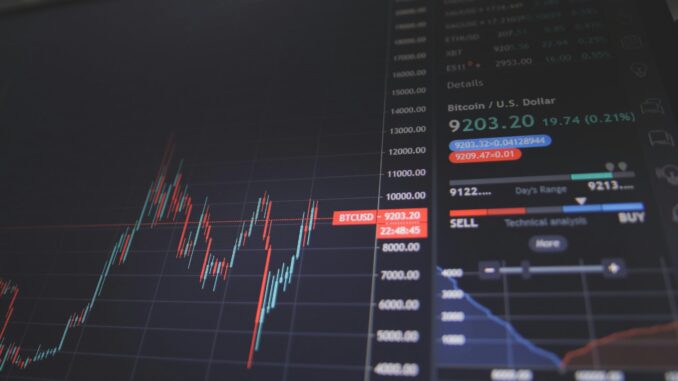
Philippine stocks tumbled more than 100 points Thursday as the US equities declined on uncertainty ahead of the Nov. 5 US presidential elections.
The 30-company Philippine Stock Exchange index closed at 7,142.96, down by 137.28 points, or 1.89 percent, from previous trading, while the broader all-shares index declined by 39.37 points, or 0.99 percent, to settle at at 3,957.21.
Financial markets will be closed Friday for the commemoration of All Saints Day.
“Philippine shares fell after trading in the green yesterday as caution lingered among investors ahead of next week’s US presidential elections,” Regina Capital Development Corp. head of sales Luis Limlingan said.
Limlingan said investors were also waiting for more corporate earnings results.
Indices ended mixed. Mining and oil jumped 0.44 percent, as gold prices reached a record high on Wednesday due to increased safe-haven demand amid uncertainty surrounding the US presidential election.
Financials, on the other hand, declined by 2.71 percent, while services also went down by 2.43 percent. Value turnover reached P4.966 billion, with 97 advancers against 88 decliners and 56 unchanged issues.
GT Capital Holdings Inc. was among the top index gainers, increasing by 2.71 percent to P720, while International Container Terminal Services Inc. was at the bottom, declining by 4.58 percent to P396.
Meanwhile, Asian stocks were mostly down Thursday following a weak lead from Wall Street, though better-than-expected manufacturing data from China provided a glimmer of good news for local markets.
The three main US stock indices lost ground on Wednesday, and Asian investors appeared to be in a risk-averse mood ahead of a coin-toss US election and after a widely expected decision by the Bank of Japan to leave its main interest rate unchanged.
Tokyo fell by half a percent, weighed down by a stronger yen and a drop in stocks linked to the semiconductor industry, which also dipped on Wall Street.
The Bank of Japan said in an outlook report accompanying its rate announcement that there were “high uncertainties surrounding Japan’s economic activities and prices”.
Its decision to stand pat came after an election that saw the ruling coalition lose its majority in the lower house for the first time since 2009.
Businesses and economists worry that Prime Minister Shigeru Ishiba will offer tax cuts and higher spending, and go slow on reforms needed to improve Japan’s competitiveness as he courts support from other parties.
There are also concerns that the government may pressure the BoJ to take a break from its gradual normalization of its ultra-loose monetary policy, even if it leads to a weaker yen.
The bank raised borrowing costs in March for the first time since 2007, and did so again in July.
It signaled Thursday that it would raise rates yet again if inflation developed as it expected, and noted it was paying “due attention” to other economies, particularly the United States, where the presidential election takes place on November 5.
Seoul was well down on Thursday, with Hong Kong, Sydney, Wellington, Mumbai and Manila in the red as well.
Stephen Innes of SPI Asset Management attributed Asian markets’ wobble to pre-vote “jitters”, saying traders were “wary of taking on new risk as the US election countdown begins”.
“The fear? A Trump win could trigger fresh tariffs on Asian exports, sending ripples across the region,” he wrote.
Paris, London and Frankfurt also began the day with losses.
Mainland Chinese markets, however, bucked the trend, with healthy gains in Shanghai and Shenzhen following a forecast-beating manufacturing report from China.
Factory output expanded this month for the first time since April, official data showed Thursday, rare good news for leaders struggling to boost activity in the world’s second-largest economy.
The country is battling sluggish domestic consumption, a persistent crisis in the property sector and soaring government debt — all of which threaten Beijing’s official growth target of five percent for this year.
“The PMIs have overstated the weakness in China’s economy during the past year,” Julian Evans-Pritchard of Capital Economics said in a note.
“The good news is that, after turning a corner in September, the official surveys point to a further improvement in October, with an acceleration in manufacturing and services activity more than offsetting a further slowdown in construction.”
Jakarta and Bangkok were also up, while Taipei was closed due to a typhoon.
Uncertainty over the outcome of the upcoming US elections, meanwhile, buoyed safe haven gold, which touched a fresh high just shy of $2,790 an ounce on Thursday.
And oil prices continued their rebound in Asian trade, fueled by good news on demand from the United States, as well as by press reports that OPEC countries are considering postponing an increase in crude supply. With AFP


Be the first to comment